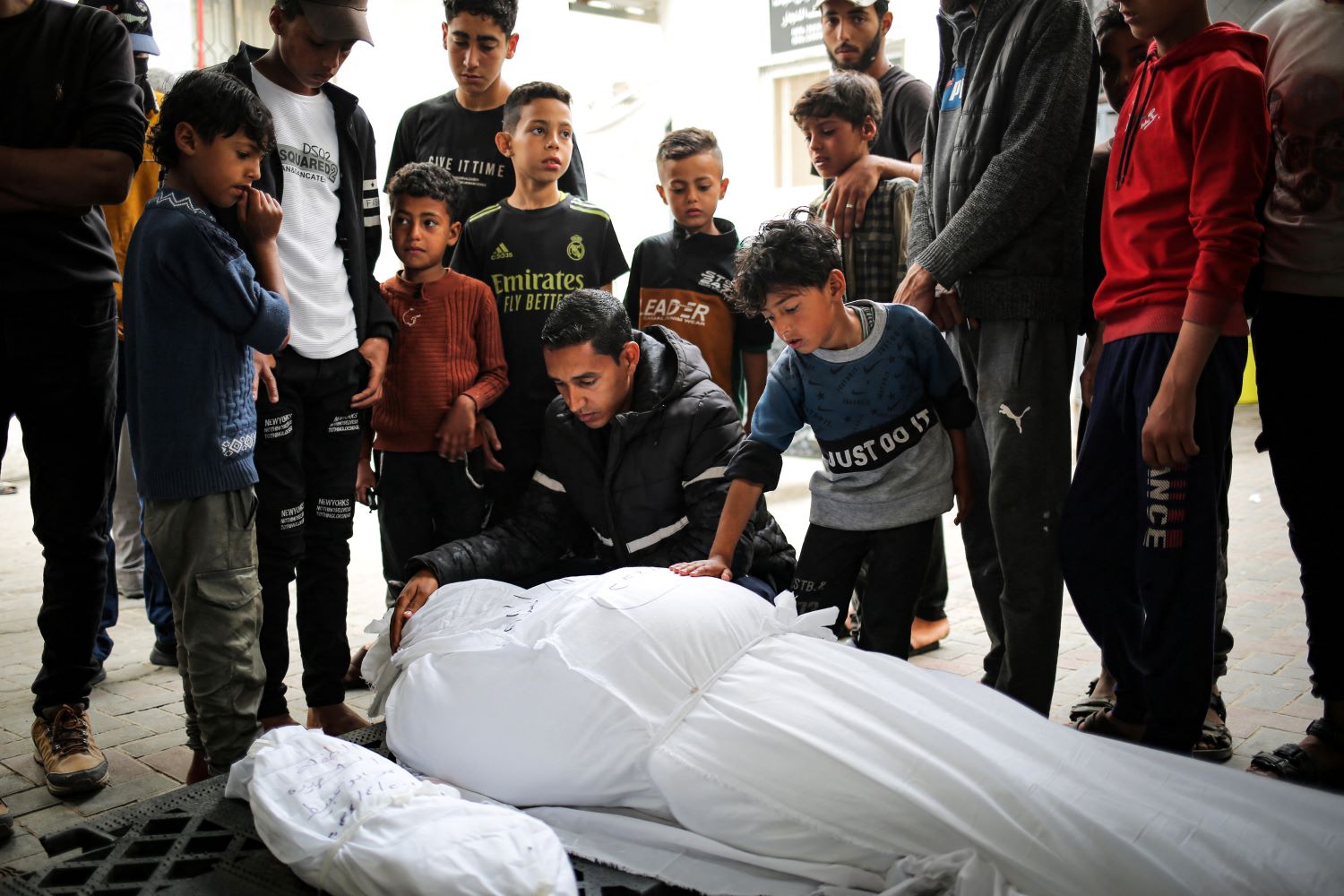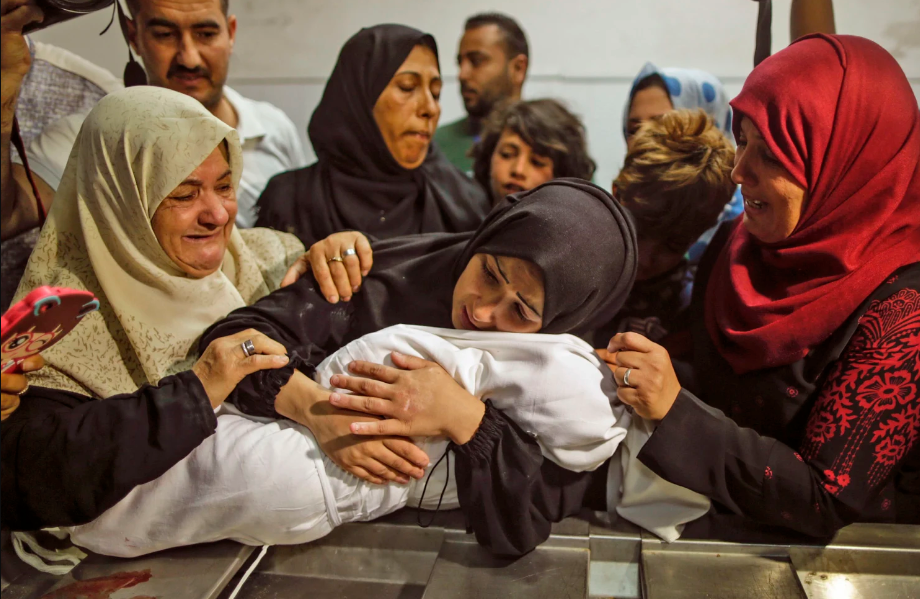RAMALLAH, April 17, 2017 (WAFA) – Following are the major hunger strikes carried out by Palestinian prisoners in Israeli jails since the beginning of the Israeli occupation in 1967:
- The strike of Ramle prison on February 18, 1969, which lasted for 11 days.
- The strike of the Kfar Yona prison on February 18, 1969, which lasted for eight days.
- The strike of Palestinian women prisoners at Neve Tirza prison on April 28, 1970: the strike lasted for nine days. The women prisoners were subjected to humiliation and punishment, including solitary confinement. The prison administration promised to respond to the prisoners’ demands, but only little achievement was made.
- Asqalan prison strike on July 5, 1970, which continued for seven days.
- Asqalan prison strike from September 13 to October 10, 1973.
- The open-ended hunger strike on December 11, 1976: the strike started at Asqalan prison to improve conditions. As a result of the strike, which lasted for 45 days, the prison administration allowed entry of stationery to the prisoners and improved the quality and quantity of food.
- Asqalan prison open-ended strike on February 24, 1977, which lasted for 20 days.
- Nafha prison strike on July 14 1980, which lasted for 32 days. The prisoners were assembled in Nafha prison, which opened in the Naqab desert on May 1 of the same year, in extremely harsh conditions. Large numbers of prisoners were cramped into a single room, which lacked air with small ventilation openings.
The strikers were brutally attacked by the prison guards, but they continued their strike. Israel, however, used the policy of forced feeding against them to end the strike.
A number of prisoners whose conditions worsened from the strike and force-feeding using catheter were transferred to Nitzan prison in Ramle where they underwent sever treatment by the prison authorities. One prisoner, Rasem Halawah, died on July 21 and then the prisoner Ali Jafari. Prisoner Ishaq Maragha almost died of force-feeding but was rescued because of the presence of attorney Lea Tsemel in at the prison hospital. However, he died two years later from force-feeding complications. Fourth prisoner, Anis Doleh, also later died from complications.
The strike was considered the most critical one after which prison conditions were systematically improved.
- The strike of Juneid Prison in September 1984, which lasted for 13 days. The strike took place after the opening of Juneid Prison in Nablus in July 1984.
- The strike of Juneid prison on March 25, 1987, when more than 3,000 prisoners in various prisons participated in and which lasted for 20 days. This strike came after David Maimon assumed office as director of the prisons. He prevented the prisoners from receiving clothes from their families and reduced the amount of food provided to the prisoners.
- The strike of January 23, 1988 during which prisoners declared a hunger strike in solidarity with striking leaders of the Intifada.
- The strike of Nafha prison on June 23, 1991, which lasted for 17 days. The strike kick-started as the first Palestinian Intifada (uprising) intensified against the Israeli occupation.
- The strike of September 25, 1992, considered one of the most successful and which included most of the prisons with about 7,000 prisoners taking part. This strike continued for 18 days in most prisons and 19 days in Nafha prison.
The strike ended with major achievements, such as closing the isolation section of Ramle prison, stopping the naked inspection, increasing the time of family visitation and allowing for special visits.
- The June 1994 strike, which included most prisons and lasted for three days.
- The strike of 18 June 1995 calling for the release of all prisoners without exception, and lasted for 18 days.
- Asqalan prison strike of 1996: The prisoners went on hunger strike for 18 days. They only drank water and salt. The strike ended based on promises from the Israeli Prison Service to improve the living conditions of the prisoners, including giving prisoner mattresses.
- The prisoners went on an open-ended hunger strike on December 5, 1998 following Israel‘s release of 150 criminal prisoners as part of the 750-prisoner release under the Wye River Agreement.
- The prisoners entered an open hunger strike on January 5, 2000 in protest against the policy of isolation, restrictions and preconditions on the visits of the detainees’ families. The strike lasted for almost one month.
- The strike of the Neve Trista prison on June 26, 2001: the women prisoners entered into an eight-day hunger strike in protest against the bad imprisonment conditions.
- The full strike in all prisons on August 15, 2004, which continued for 19 days due to worsening imprisonment conditions, including maltreatment and physical abuse. The prisoners were able to obtain minor achievements.
- The 2004 strike: Two and a half months after the prisoners started a hunger strike at Hadarim prison, the other prisons joined the strike on August 15, 2004.
- The strike of Shatta prison on October 7, 2006 which lasted for six days: The strike was ignited by Israeli authorities’ humiliating inspection of the families of the detainees during the visits.
- One day hunger strike in all prisons on November 18, 2007.
- The 2011 strike of prisoners of the Popular Front for Liberation of Palestine. The strike continued for 22 days to demand a halt to the policy of solitary confinement.
- General strike on April 17, 2012.
- The administrative prisoners‘ strike on April 24, 2014: Some 120 Palestinian administrative detainees in Megiddo, Ofer and Naqab prisons began an open-ended hunger strike to protest their continued administrative detention without charge or trial.
M.N./M.K.










